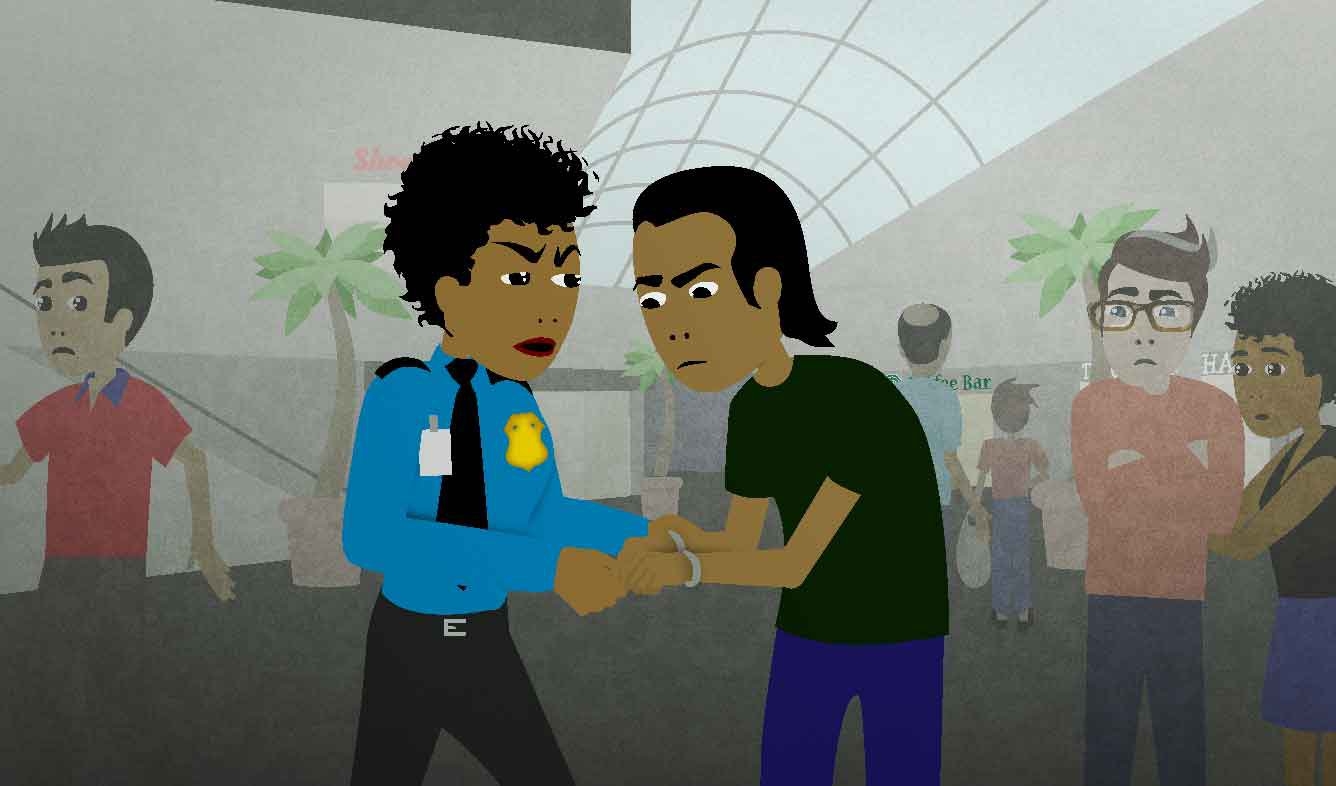“You have the right to remain silent. Anything you say can and will be used against you in a court of law.”
You're a police officer. You're arresting someone. You say:
You have the right to remain silent. Anything you say can and will be used against you in a court of law.
Want Video and Sound? Follow us on YouTube

have the right to (do something)
Americans have a strong belief in "rights". The Constitution of the U.S., which is the document that contains the country's most important laws, gives Americans several rights such as the right to carry weapons and the right to free speech.
So what does it mean to "have the right to" do something? It means that you are allowed to do it, and no one should be allowed to make you stop doing it. So the sentence:
Shouldn't a woman have the right to choose what she does with her own life?
...means that women should be allowed to choose whether to stay home or go to work.
Other "rights" that you may hear people talk about include:
- basic human rights (things like food, clean water, and not being made into a slave by anyone)
- civil rights (not being discriminated against or treated badly by the government)
- the right to remain silent (for someone who is arrested)
You have the right to remain silent. Anything you say...
In the United States, there are laws which protect people who are arrested for crimes. One of the laws says that the person who is arrested needs to understand that
- the police cannot force them to talk or confess their crimes
- anything that they say to the police will become evidence if they go to court for the crime
Because of this, poilce (or at least police on TV and movies) say this statement to a person who they are arresting:
You have the right to remain silent.
This means that the arrested person doesn't have to say anything. Then they continue:
Anything you say can and will be used against you in a court of law.
This means that what they say can become evidence in a trial against them.
There are other rights that the police usually read after that:
You have the right to an attorney. If you cannot afford an attorney, one will be provided for you.
These rights are a person's "Miranda rights". When a police officer says these words, they are "reading someone their rights":
I read him his rights and then put him in the police car.
